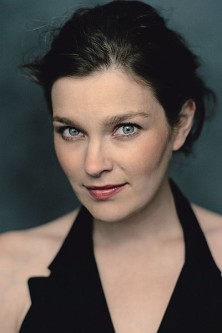 Switzerland Prokofiev Dvorak Tonhalle Orchestra Zurich, Janine Jansen (violin), David Zinman (conductor), Tonhalle Zurich, 20.2.2014 (JR)
Switzerland Prokofiev Dvorak Tonhalle Orchestra Zurich, Janine Jansen (violin), David Zinman (conductor), Tonhalle Zurich, 20.2.2014 (JR)

Prokofiev: Violin Concerto No. 2
Dvorak : Symphony No. 9
I had the interesting opportunity to compare and contrast two quite different performances of “The New World” Symphony this week. It felt like Radio 3’s “Building A Library”. First though, in this Tonhalle Orchestra concert, we heard Janine Jansen play the Prokofiev 2nd violin concerto.
The concerto allowed Jansen to display her fiery temperament, particularly in the two outer movements and show her tenderness in the lyrical central Andante. In the opening Allegro Jansen was feisty and appropriately frenzied; Jansen was however more convincing in the eloquence of the slow movement. The final Allegro was wild and angry, a virtuosic tour de force, Jansen – only just – keeping her wild mane in check. Zinman’s accompaniment went unnoticed, the way it should be where the soloist takes the limelight. This is easy-on-the-ear Prokofiev and the audience asked for an encore, duly granted: unusually, this took the form of a Tchaikovsky “Melodie” with full string orchestra.
Only a few days earlier, in the same hall, I heard the Czech Philharmonic play the Dvorak 9 under Jiri Belohlavek so the comparison was going to be fascinating. The Czechs must play this old warhorse many times each year, whilst the Tonhalle will play it only rarely. At times Zinman displayed more forward momentum, urgency and muscle whilst Belohlavek took a more relaxed approach, the Czechs drawing on their immense experience with this work. The Tonhalle Orchestra found that hard to emulate. The Tonhalle Orchestra’s sound is crisp, clean and refined but that is not what one searches for in this composer: I preferred the muddier but relaxed Czechs, who when needed played with abandon. Zinman looked rather stiff, whilst Belohlavek was able to let the music flow. There was a risk, I feared, that the Czechs would look bored but this was not at all the case.
The cor anglais solo in the Largo was finely executed conjuring up all the usual pastoral images (though I have to admit of always thinking of rural Yorkshire, or is it Dorset, and that infernal TV bread commercial rather than Moravia when I hear it). All other sections of the orchestra played commendably, with special mention going to impressive flautist Esther Pitschen Amekhchoune.
So, on balance, the Tonhalle Orchestra were fine, but the Czechs have it – though I doubt many subjected themselves voluntarily to two Dvorak 9’s in the space of a few days, despite the work’s undoubted and instant melodic appeal.
John Rhodes